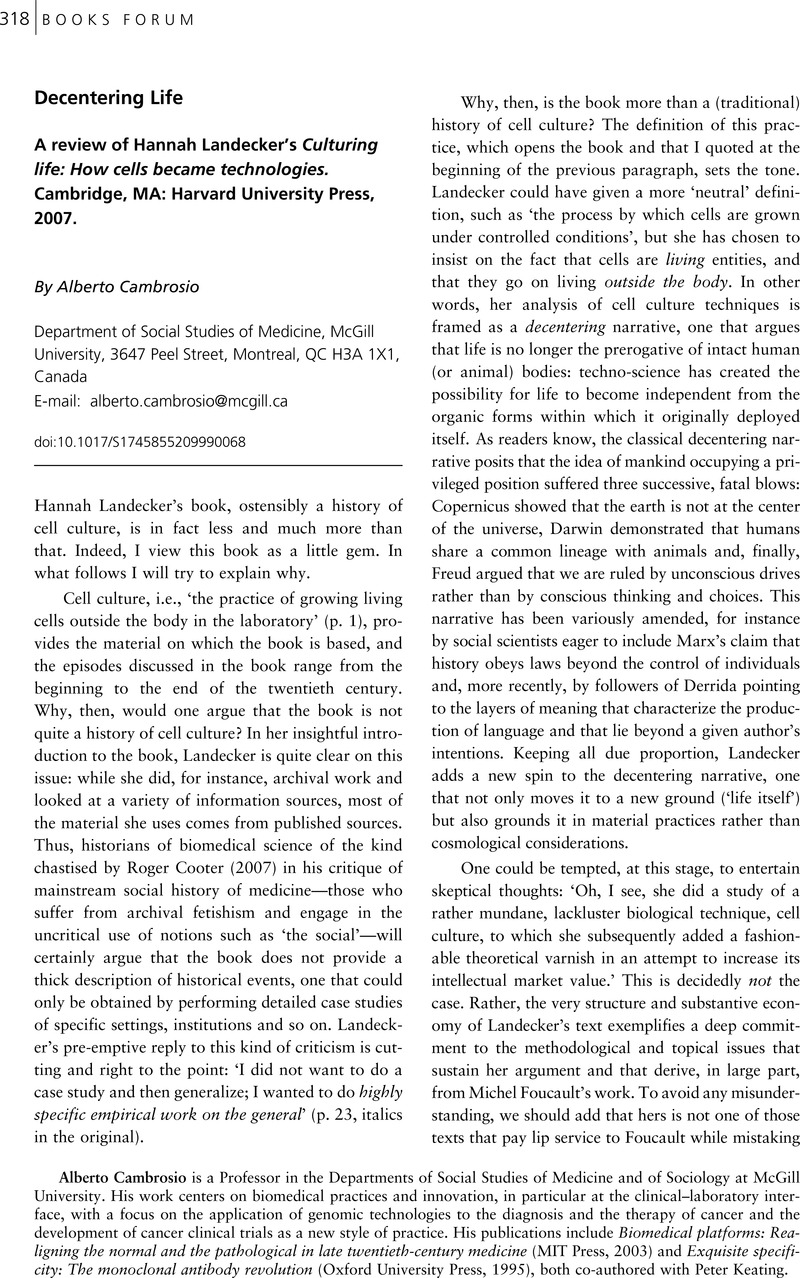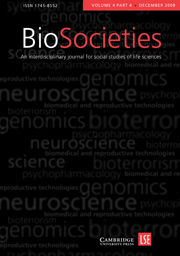No CrossRef data available.
Article contents
Decentering Life - A review of Hannah Landecker’s Culturing life: How cells became technologies. Cambridge, MA: Harvard University Press, 2007.
Published online by Cambridge University Press: 01 September 2009
Abstract
An abstract is not available for this content so a preview has been provided. Please use the Get access link above for information on how to access this content.

- Type
- Books Forum
- Information
- Copyright
- Copyright © London School of Economics and Political Science 2009
References
Cambrosio, A., & Keating, P. (1995). Exquisite specificity: The monoclonal antibody revolution. New York: Oxford UP.Google Scholar
Cooter, R. (2007). After death/after-‘life’: The social history of medicine in post-postmodernity. Social History of Medicine, 20, 441–464.CrossRefGoogle Scholar
Rabinow, P. (2000). Epoch, presents, events. In Lock, M., Young, A., & Cambrosio, A. (Eds.), Living and working with the new medical technologies: Intersections of inquiry, 31–46. Cambridge: Cambridge UP.Google Scholar
Rheinberger, H.-J. (2000). Beyond nature and culture: Modes of reasoning in the age of molecular biology and medicine. In Lock, M., Young, A., & Cambrosio, A. (Eds.), Living and working with the new medical technologies: Intersections of inquiry, 19–30. Cambridge: Cambridge UP.Google Scholar


